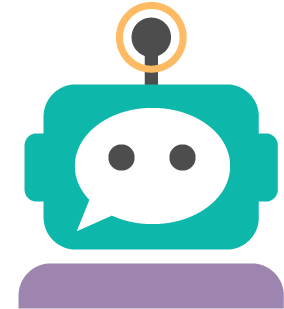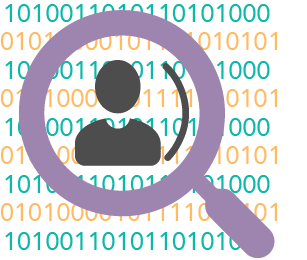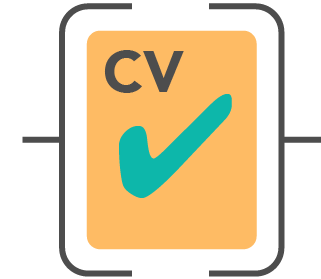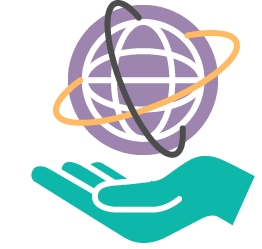Five ways AI is changing the recruitment industry
Artificial Intelligence is changing how we work, influencing almost every aspect of our lives. But how is it used to sharpen recruitment practices?
By Tim Gibson
Everyone knows that Artificial Intelligence (AI) is the greatest technological advance of a generation. By simulating human thought processes in machines, it’s possible to enjoy the benefits of automation without losing the personal touch.
| AI can be used to identify potential job hunters and cross-match their skills and qualifications with vacancies. |
AI is reshaping pretty much every sphere of human activity, from self-driving cars like the Robocar that successfully completed Goodwood’s Hillclimb last year to fridges like the LG ThinQ that suggests recipe ideas on the basis of what’s stored inside.
So it is no surprise that the technology is also shaping business practices – and recruitment is foremost among them.
To help you understand how AI is changing recruitment, here are five ways that the technology is being used in the industry.
1) Improving interactions with potential candidates
You’ll probably be accustomed to the little welcome message that pops up when you visit a consumer website, asking if you have any questions or want to talk. It appears on all manner of platforms, from car dealerships to online retailers, utilities providers to insurance firms.
 Get involved in a chat and you’ll feel very much as if you’re engaging with a real-life human being. But more often than not, you’ll actually be interacting with a “chatbot”. This is a computer programme that responds to certain cues in what you write to give the impression of a human conversation.
Get involved in a chat and you’ll feel very much as if you’re engaging with a real-life human being. But more often than not, you’ll actually be interacting with a “chatbot”. This is a computer programme that responds to certain cues in what you write to give the impression of a human conversation.
Recruiters can use chatbots to give potential candidates a personal experience right from their first encounter.
If you’re advertising a vacancy online, a chatbot can invite visitors into a conversation, perhaps asking if they have particular questions or want to find out more. This creates a strong first impression and may yield more interest in the job.
2) Identifying candidates
Even if candidates don’t interact with a recruiter via their website, AI can be used to identify potential job hunters and cross-match their skills and qualifications with vacancies.
 Various software companies have created programmes that do just that. Just Recruitment Group Ltd Director and former IT consultant Peter Foy thinks it is only a matter of time before recruitment companies start writing their own programmes based on the data they hold.
Various software companies have created programmes that do just that. Just Recruitment Group Ltd Director and former IT consultant Peter Foy thinks it is only a matter of time before recruitment companies start writing their own programmes based on the data they hold.
“If you think of a company like Just Recruitment,” he says, “we have a wealth of data about individuals, which they’ve consented for us to hold and process. By crunching that data, we can cross-refer to the jobs we’re currently advertising, and be proactive in approaching the best candidates. It’s what good recruiters have done for generations. The difference is, nowadays a computer can do the hard work, making it quicker and easier to find the right people.
3) Filtering CVs
As well as identifying candidates, AI can be used to wade through a pile of CVs and select the best prospects, as this article from Forbes makes plain.
 “CV filtering is a really good example of the efficiencies that AI can bring to the recruitment process,” says Mr Foy. “Traditionally, a recruiter or HR team would have to read candidates’ CVs in detail to create a long list. With the right algorithms, AI programmes can do this work in a heartbeat, ensuring only the best-qualified candidates make it through to interview.”
“CV filtering is a really good example of the efficiencies that AI can bring to the recruitment process,” says Mr Foy. “Traditionally, a recruiter or HR team would have to read candidates’ CVs in detail to create a long list. With the right algorithms, AI programmes can do this work in a heartbeat, ensuring only the best-qualified candidates make it through to interview.”
What’s more, says Mr Foy, AI can conduct this process in a completely unbiased fashion, ignoring personal details such as gender, age, ethnicity or sexual orientation. “Not only does that speed up the recruitment process. It also makes it a lot fairer.”
4) Conducting initial interviews
Talking of fairness, perhaps the most exciting innovation in the use of AI to enhance recruitment is as a tool for conducting unbiased interviews.
According to a BBC report, a Swedish company is working on a robot that can conduct face-to-face interviews that replicate human interaction, but without any risk of bias.
Furhat Robotics has designed the robot, called Tengai, to help recruiters select the very best candidates for second interviews. She asks a standard set of questions, but does so in a way that is responsive and friendly. She then filters candidates by reference to their answers, ensuring that the process is neutral and entirely transparent.
“The benefits of deploying a machine such as Tengai are multiple,” says Mr Foy. “It’ll be cheaper and more time-efficient to conduct initial interviews using a robot than a human, because a machine like Tengai won’t be distracted in the way a human being might be. We’ll also be a lot more certain that candidates are selected on the basis of their merits alone, rather than any unconscious bias on the part of the interviewer. That’s a really important improvement to the process.”
5) Shaping the future
In addition to selecting candidates for a current vacancy, AI will help improve the process in future.
 “Each time an AI machine is used in finding a candidate for a job, it gains yet more data and intelligence about the process,” says Mr Foy. “With the right programming, that data can be used to predict what candidates are required for future jobs, and to reshape the process of identifying, filtering and interviewing them.
“Each time an AI machine is used in finding a candidate for a job, it gains yet more data and intelligence about the process,” says Mr Foy. “With the right programming, that data can be used to predict what candidates are required for future jobs, and to reshape the process of identifying, filtering and interviewing them.
“In essence, as machines get smarter, they make it easier to hand-pick candidates, because they’ll learn what sort of a person works well for what sort of a job. They’ll do what good human recruiters do, but in a way that’s smarter, more timely and much cheaper. As a result, humans can focus on the final, nuanced part of recruitment, knowing that the candidates before them have been selected in an intelligent, neutral and highly efficient manner.”
If you enjoyed this article, you may also like:
Why it’s time for the recruitment industry to think big
10 jobs of the future
Published: 17 June 2024
© Copyright Just Recruitment Group Ltd 2024

